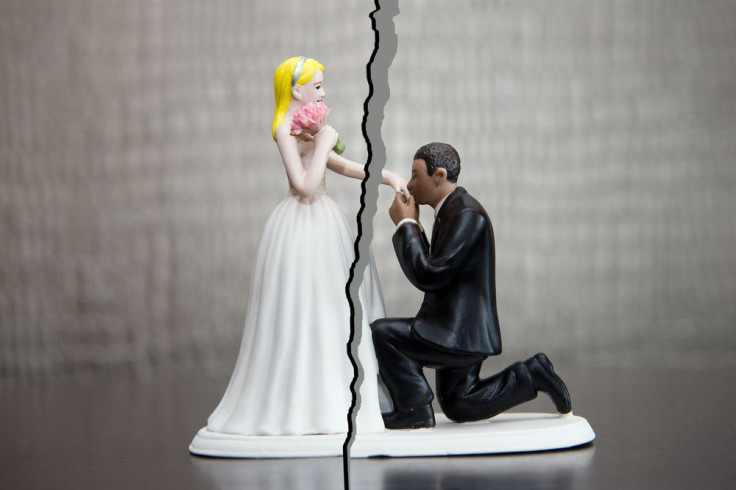Evolutionary Psychology's Effect On Divorce: Married Women Carry 'Historical Baggage,' End Their Relationships More Than Men

Women initiate most divorces in the United States, but it’s not for the reasons we think, according to a new study presented during this year’s annual meeting of the American Sociological Association in Chicago.
Study author Michael J. Rosenfeld, a sociology professor at Stanford University, cited that the existing idea behind women driving the divorce rate was because they were more sensitive to the ups and downs of relationships. But the truth is, the reasons women no longer want to be married are “poorly understood.” Rosenfeld and his team commissioned a longitudinal study in order to gain some deeper insight.
He started by recruiting more than 2,000 heterosexual couples to take a survey called “How Couples Meet and Stay Together” in 2009; he followed up with more questions in 2010, 2011, 2013, and 2015. If at any point during these follow-up periods respondents answered their relationship with their spouse or partner was no longer intact, Rosenfeld asked questions to learn more, such as “Between you and [your partner], who wanted the divorce/separation/breakup more?” Participants were also given an opportunity to explain why their relationship ended.
Rosenfeld found women initiated 69 percent of divorces compared to just 31 percent of men. However, if men and women had been living together without getting married, each gender was equally likely to break up. Additionally, he found mutual breakups among the non-marital couples were more common.
To Rosenfeld, this suggests womens' tendency to want to divorce is not inherent to their relationships with men.
“Women’s inherent interest in marriage and commitment has usually been assumed to be higher than men’s inherent interest in marriage and commitment,” he explained. “Women’s supposed preference for marriage is a central feature of the gendered assumptions of sex ratio theory, and mens’ supposed preference for commitment-free sexual relationships is a staple of evolutionary psychology.”
Ultimately, Rosenfeld thinks that marriage as an institution has been “a little bit slow to catch up” with what men and women expect of gender equality. At the same time, the non-marital relationships that endure more amicable breakups could just lack this “historical baggage and expectations of marriages,” making them more flexible and more adaptable to modern relationships and romance.
Feminism For a Happier Relationship?
The divorce rate has been declining over the last few years — though it could be it was never accurately represented in the first place. According to The Huffington Post, the high divorce rate of the late 1970s and early 1980s may have just been a "historical anomaly," rather than an actual trend. HuffPo cited about 70 percent of marriages that began in the 1990s reached their 16th anniversary, which is up from an estimated 65 percent of those that began in the 1970s and 1980s.
Coincidentally, the women's rights movement has also made significant strides since the 70s and 80s, thanks in part to second wave feminism.
“Women’s and men’s expectations about marriage have certainly changed since the second wave feminist revolution,” Rosenfeld said. “Gerson’s ethnography of marital relationships in 1970s New York described a diversity of idealized and enacted gender practice within relationships, from traditional (husband breadwinner, wife homemaker) to more egalitarian. Couples who shared a traditional ideology or traditional gender practice explicitly embraced or implicitly accepted some aspects of patriarchy within relationships.”
But then couples with this more egalitarian approach were also making choices informed by second wave feminist critiques of heterosexual marriage — they’re constraining, uncomfortable, and controlling.
“So if wives in the 21st century U.S. continue to be less satisfied than husbands in their marriages and wives are more willing to desire divorce, and if the Second Wave Feminist critique of marriage as a gendered institution is correct, we might expect to find the gender marital satisfaction gap especially prominent in couples whose husbands hold traditional views about gender roles,” Rosenfeld concluded.
Source: Rosenfeld MJ. Who Wants the Breakup? Gender and Breakup in Heterosexual Couples. American Sociological Association's 110th Annual Meeting. 2015.



























